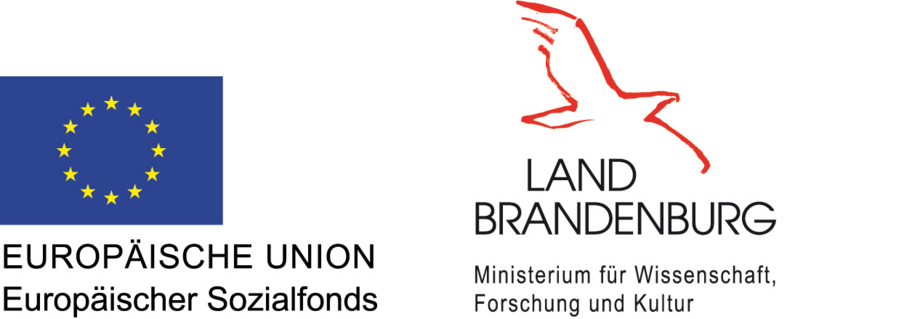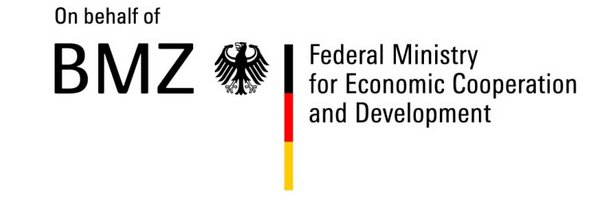Projects

Our team is available to advise you on applications for research and development projects in the field of digitally supported teaching and as a cooperation partner. As a competence and service center for digitization in teaching, the MMZ initiates, acquires and conducts third-party funded projects.
KI@MINTHands-on Artificial Intelligence: Innovative study programs for practice-oriented qualification of specialists
New course profiles are being developed at the BTU for the needs-based qualification of academic specialists. In this context, measures for the development of competencies in fundamental concepts and methods of artificial intelligence (AI) are being tested in the overall project. The main focus of the subproject, which is located at the Multimedia Center, is the media-didactic and educational-technological accompaniment and support of these measures.
- Project management: Prof. Dr. rer. nat. habil. Peer Schmidt, Vice President Studies and Teaching
- Subproject management: Dr. Börner, Boguslaw Malys
- Project partners:
- Prof. Dr. Michael Breuß (Department of Applied Mathematics), Prof. Dr. Douglas Cunningham (Chair of Graphical Systems)
- Prof. Dr. Ulrich Berger, Dr. Marc Gebauer (Chair of Automation Technology)
- Prof. Dr. Armin Fügenschuh, Dr. Jesse Beisegel (Department of Engineering Mathematics and Numerics of Optimization), Prof. Dr. Achim Bleicher, Paul Marker (Chair of Hybrid Design - Solid Construction)
- Prof. Dr. Christian Hentschel, Kirko Große (Chair of Media Technology)
- Prof. Dr. Silke Michalk, Heike Bartholomäus (Center for Scientific Continuing Education)
- Funded by: BMBF
- Duration: 01/2022 to 12/2025
- MMZ Project Collaboration by:
- Marlen Dubrau (marlen.dubrau(at)b-tu.de)
- Steffen Schulze (schulze(at)b-tu.de)
Completed projects Internal projects & with other disciplines and institutions
WHS OnlineWorld Heritage Studies Online
As one of 19 projects of the DAAD funding program "International Programs Digital (IP Digital)", the digital distance learning program WHS Online will be established at the BTU since the beginning of 2021 through the professional didactic and content-related expansion of the existing four-semester master's program World Heritage Studies (face-to-face program WHS On-Campus). In the process, the competencies, (technical) framework conditions, and IT infrastructure at the BTU are also being further developed for the professional handling of digital study programs.
- Project management: Prof. Dr. Dr. h.c. (NMU, UA) Michael Schmidt (BTU Department of Environmental Planning) is in charge of the project
- Funded by: DAAD
- Duration: 11/2020 to 12/2022
- MMZ project collaboration by:
- Franziska Weidle, PhD (franziska.weidle(at)b-tu.de)
Competencies for university teachers for more learning success in heterogeneous student groups through the use of eAssessments and eExams
- Duration: 01/2021 until 06/2022
- Third party funding: ESF / ILB
- Project Management: Boguslaw Malys
- wiss. Collaborators: Marlen Dubrau, Andreas Brandt, Sabine Seidel, Mathias Schulze
Brief description
Within the framework of the project, a certified training measure will be developed, carried out and accompanied during a subsequent practical phase. The training aims at qualifying teachers of all Brandenburg universities for a competent use of eAssessments in times of an increasingly diverse student body. The focus is on the individualized, fair and equal opportunity assessment of knowledge, performance and competencies before, during and after courses. It is also about the recording and evaluation of performance and learning curves as well as quick and personalized feedback.
>> All information can be found on the project homepage.

The project "heterogen-ial Prüfen" is supported by the Ministry of Science, Research and Culture with funds from the European Social Fund.
Recognize and overcome initial hurdles Blended learning to support subject-specific study preparation and learning success in the first year of study.
- Duration: 03/2012 until 12/2016
- Third party funding: BMBF
- Project Management: Prof. Dr. Annemarie Jost
- Project coordination: Tobias Falke
- Project collaboration: Tobias Kutzner, Christian Steinert
- List of publications
Brief description
In view of the highly heterogeneous structure of first-year students, the project places a special emphasis on overcoming deficiencies in mathematics skills. Within the framework of subject-specific pre-tests, which are offered via an information platform, prospective students should be enabled in sub-project 1 to assess whether they lack important prior knowledge in the field of mathematics (self-assessment).
At the same time, potentials and obstacles in the area of independent knowledge acquisition and self-management are to be identified and those willing to study are to be encouraged to attend preliminary courses if necessary. The existing pre-course offerings will be expanded from one to three weeks prior to the start of the semester. The modular pre-courses will be curricularly further developed in such a way that lacking knowledge of mathematical basics (upper level) can also be compensated for in the first and second semester in study-accompanying refresher courses.Publication list: in progress

This project is funded by the German Federal Ministry of Education and Research under grant number 01PL12027.
ECO Campus
- Duration: 2014 - ongoing
- Sponsor: GIZ - German Society for International Cooperation
- Project Management: Prof. Dr. Michael Schmidt, Department of Environmental Planning
- Project coordination: Eva Leptien
- Project Collaboration:Christian Steinert
Brief description
The aim of the project is the establishment of a university science and education network, which is supported by GIZ and the Brandenburg University of Technology Cottbus-Senftenberg (BTU CS). Selected partner universities from Ukraine, Cameroon, Vietnam, Lebanon and Peru will be among the founding members of the network.
The ECO-Campus pursues the goal of anchoring the concept of sustainable resource management in the learning objectives and curricula of universities and educational institutions across disciplines as a cross-cutting topic in the sense of a Green Curriculum. In addition to basic instruments such as project-based environmental impact assessment and strategic environmental assessment for plans and programs, which are now part of the standard environmental repertoire in many countries, concepts and methodological approaches such as Liefe Cycle Assessment, private sustainability standards (Voluntary Sustainability Standards) or Corporate Social Responsibilty (CSR) are becoming increasingly important building blocks of sustainable development.
ECO-Campus provides the technical platform for the association and cooperation with universities that want to integrate the topic of sustainability more strongly into their curricula as a common goal. Based on an internationally used open source software solution (Moodle), the contents of the e-learning platform are made available server-supported at any time. ECO-Campus thus functions as a central communication and learning platform through which the various contents are made available. In addition, Eco-Campus thus lays the foundation for a Green Curriculum in which other disciplines that pursue ecologically and socially sustainable thinking, planning, acting and decision-making can be integrated into the curriculum.


Excellence of study and teaching Individual study entry, innovative study models, research-based learning
The Federal Ministry of Education and Research (BMBF) supports the improvement of study conditions and teaching quality at German universities with the federal-state program Quality Pact for Teaching. The BTU project "Excellence in Studies and Teaching: Individualized Entry into Studies, Innovative Study Models, Research-Based Learning," headed by Vice President for Teaching and Studies Prof. Matthias Koziol, will receive more than five million euros in funding during the second funding period (2017 to 2020). In view of the BTU's increasingly heterogeneous student body, the project aims to provide students with more individualized support: In three packages of measures, the mathematical/scientific competencies of students are promoted, innovative study models are further developed, and teaching and learning processes are supported by digital teaching concepts and formats.
Package of Measures II - Digital Teaching: Support, Advice and Qualification
- Duration: 01/2017 until 12/2020
- Third party funding: BMBF
- Subproject management: Boguslaw Malys
- Scientific supervision: Dr. Claudia Börner (IKMZ director)
- Subproject coordination: Tobias Falke
- Collaborators in the subproject: Marie Theres Augsten, Andreas Brandt, Andreas Engel, Tobias Falke, Tobias Kutzner, Mathias Schulze, Steffen Schulze, Marie Troike
Brief description
The digitization of teaching at the BTU is supported by a comprehensive range of consulting, support and qualification services for teachers and students, with the aim of securing and further developing high-quality university teaching.
The range of support includes media-didactic consulting and qualification, practical e-learning and e-examination support, further development of technical platforms and tools, in particular the development of a personal learning environment (PLE), and support for lecturers in the development of digital learning materials.
The basis of the activities is the examination of scientific questions in the areas of media didactics as well as educational technology. The developed innovative concepts and scenarios for digital teaching are tested and evaluated in practice. Special emphasis will be placed on cooperation with the other two packages of measures in the project.
The package of measures II: Digital teaching - support, consulting and qualification is located in the IKMZ/ Multimedia Center.

This project is funded by the German Federal Ministry of Education and Research under grant number 01PL17029.
Excellence of study and teaching in the real laboratory
- Duration: 03/2012 until 12/2016
- Third party funding: BMBF
- Project Management: Prof. Dr.-Ing. Matthias Koziol
- Project coordination: Dr. Friederike Schulz
- Project collaboration: Mathias Schulze
Brief description
The aim of the project is to secure and expand the achieved quality of education in the face of increasing student numbers. The project is divided into three packages of measures. The first focuses on ensuring a good supervision and training situation in subjects that are in high demand. The study situation here is characterized by high numbers of participants in lectures and the need to ensure a sufficient number of exercise groups and tutorials, especially in the introductory phase of studies.
Further efforts are being made to further improve the quality of teaching by expanding integrative, project-oriented forms of teaching. These play an important role in many study programs in different ways. They contribute to increasing the practical relevance and the success of the studies. Successfully tested models of project-oriented teaching and learning are to be consolidated, further developed and transferred to other study programs.
The third package of measures will provide the necessary support and advice for teachers in the use of innovative teaching methods and forms of examination as well as in the use of IT-based teaching and learning scenarios. An example of this is the supplementation of exercise groups and tutorials, such as those used in package 1, with online-based offerings.

This project is funded by the German Federal Ministry of Education and Research under grant number 01PL12029.
Center for Student Recruitment and Preparation College
- Duration: 2013 until 03/2018
- Funding: European Social Fund
- Project Management: Prof. Dr.-Ing. Matthias Koziol
- Project coordination: Kathrin Erdmann
- Project collaboration: Andreas Brandt, Marie Troike, Marie Theres Augsten
Brief description
The college of the BTU Cottbus-Senftenberg offers a unique and comprehensive range of services for starting a successful study program. The college's orientation services, such as self-tests, student labs, and counseling appointments, are designed to help prospective students on their way to making the right choice of study, so that they can better answer questions such as "Which field of study is right for me?" and "How do I meet the subject-specific requirements?" The necessary technical know-how (e.g. in mathematics, physics or technical mechanics) is imparted in preparatory courses, some of which are part-time. A study-accompanying peer group mentoring guarantees best support in the university everyday life in the initial phase of the study.
Media-supported knowledge transfer and digital teaching and self-learning elements play an important role in the implementation of preparatory and study-accompanying courses. The conception and support of these eLearning offers are supported by the experience, the competences and the technical equipment of the Multimedia Center. Among the eLearning methods used in the college are the interactive design of online-based exercises and lecture content, the integration of self-tests, the development of apps, the offer of course recording and webinars. Course instructors and tutors network via a learning platform. This makes it possible to continuously exchange regular feedback to accompany the work process of first-year students and students. At the same time, it can be ensured that participants do not experience any restrictions in terms of time and place of learning.

The project "Establishment of a Center for Student Recruitment and Preparation for Studies - College" is funded by the Ministry of Science, Research and Culture from the European Social Fund.
